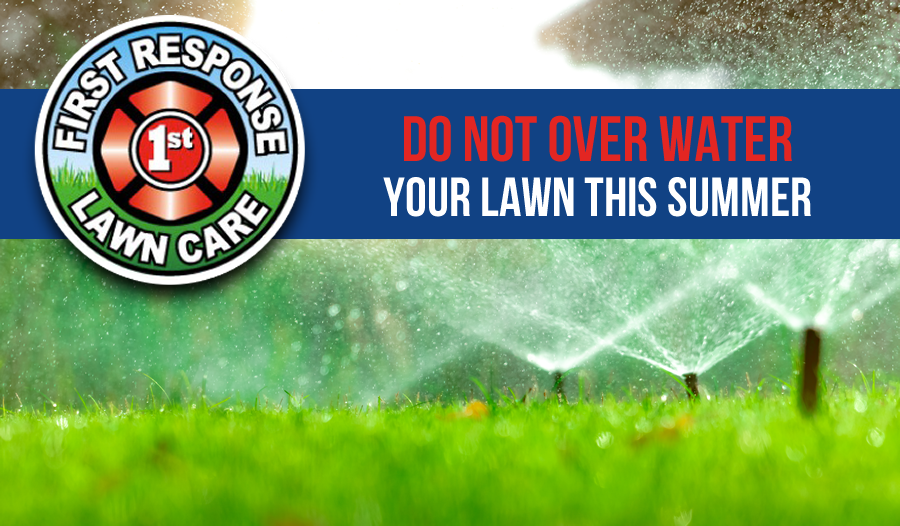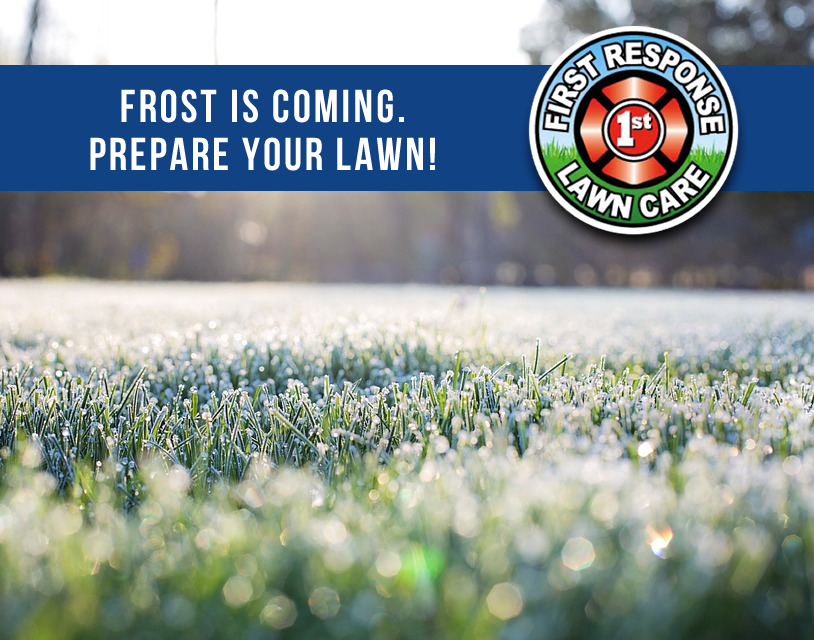
Do Not Over Water Your Lawn
The most common lawn watering mistake that most homeowners make is they over water the lawn. It is much more damaging to over water a lawn versus under water a lawn. Over watering a lawn causes the soil to become anaerobic or absent of oxygen. Water replaces air in the soil and anaerobic soils become compacted, prevent deep digging grass roots, and will kill beneficial microbial activity.
Daily lawn watering is extremely damaging for a lawn. Daily lawn watering prevents the roots of the grass from growing deep into the soil. These shallow grass roots will make the lawn unable to stay green during the heat of the summer.
The best way to promote the grass’ roots to start digging deep into the soil is to water deeply and infrequently. After changing the lawn watering to the recommendations below, your lawn might look worse before it starts to look better. The lawn will start to look healthier as soon as the grass’ roots start digging deep into the soil.
The ideal time to water a lawn is early in the morning before sunrise. Our recommendation is to finish watering no later than 6:00 AM. If this is not possible then the next best time to water is late evening.When daytime high temperatures are hot and average above 85°F: Water no more than 3 days per week. This is typically between mid or late June through mid or late August. (e.g. Water every Monday, Wednesday, and Friday).
This lawn watering technique is a very deep watering, but it also allows the soil to completely dry out before the sprinkler system waters again. Organo-Lawn invented this lawn watering technique and it is universal worldwide.
Symptoms of an Over Watered Lawn
Some clear signs of over watering a lawn include: severely compacted soils, the presence of Necrotic Ring Spot lawn fungus, the abundance of insect pressure, mold, root rot, and a shallow root system. Over watering a lawn is much worse for the grass and trees than under watering a lawn because a lawn that is watered too much will starve the soil of oxygen. Air is extremely important to the health of the soil and to promote deep digging grass roots. Most of the time when we see a lawn watering problem in a Boulder or Fort Collins area lawn, we advise the customer that we need to adjust the lawn watering schedule in their lawn, they often assume we want to increase the amount of water. This might be true some of the time, but the majority of the time we end up reducing the frequency of days the lawn is being watered and increase the duration.
First Response Lawn Care can perform a sprinkler audit and set up the system to water according to our suggestions. The lawn is usually being watered deeper and less frequent. Most of the time, after we make our adjustments, the total water use is reduced which goes a long way towards water conservation. It’s a good thing for your lawn, for resources and for your pocketbook.
Call First Response Lawn Care (214) 701-7622 if you would like a sprinkler audit, sprinkler repair or need a new irrigation system in Rockwall, Fate, Royse City and surrounding areas!

